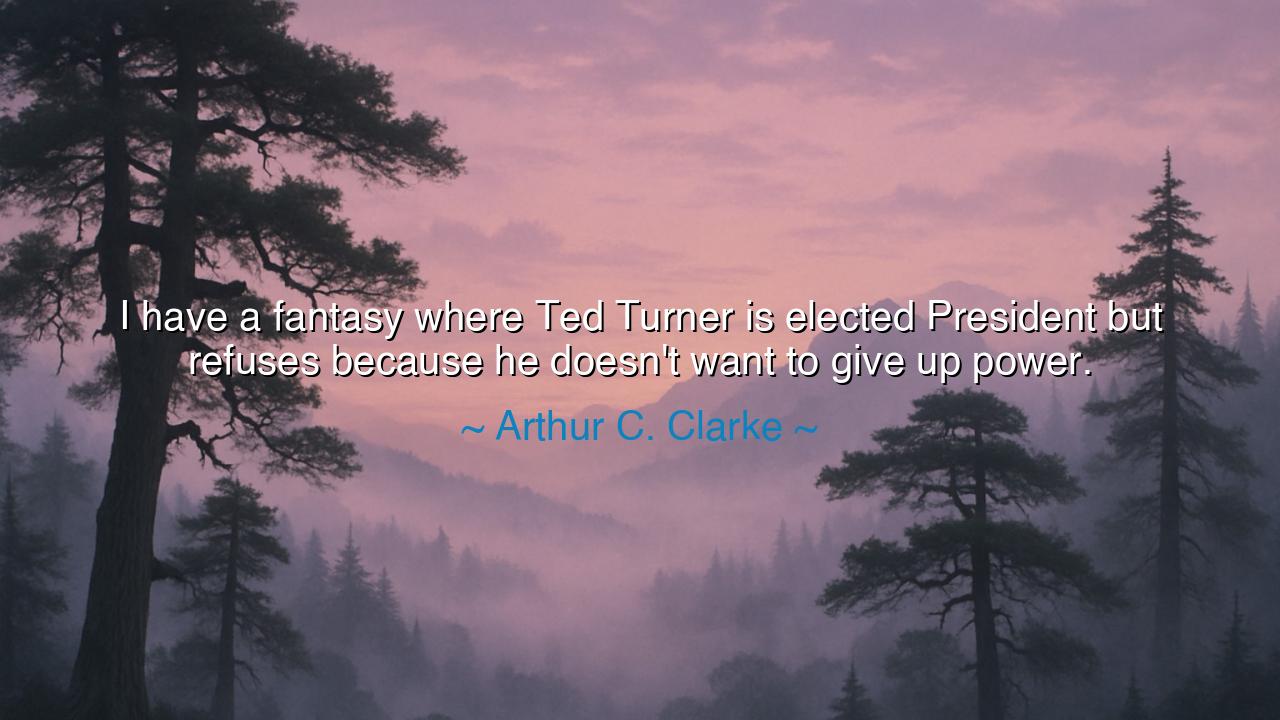
I have a fantasy where Ted Turner is elected President but
I have a fantasy where Ted Turner is elected President but refuses because he doesn't want to give up power.






Arthur C. Clarke, seer of futures and dreamer of cosmic destinies, once uttered a vision wrapped in irony: “I have a fantasy where Ted Turner is elected President but refuses because he doesn’t want to give up power.” At first hearing, this sounds like jest, a playful barb at the magnate who forged CNN and bent the currents of media. Yet beneath the laughter lies a grave meditation: the strange paradox of power, and how its grip upon men is unlike any throne or crown, for it exists not in office alone but in the influence one commands beyond titles. Clarke’s words ring like prophecy, showing us that true dominion does not always wear the mask of politics.
To be elected President is, in the earthly sense, to reach the summit of authority. Yet Clarke imagines a man who looks upon that summit and scoffs, knowing that the real power lies elsewhere—in wealth, in media, in the shaping of minds and the bending of nations without the chains of public duty. This fantasy is both comic and tragic: comic in its inversion of expectations, tragic in its revelation that the throne of the people is sometimes weaker than the empire of private will. The lesson is stark—sometimes the one who declines the crown holds more sway than the one who accepts it.
History itself offers echoes of this paradox. When Julius Caesar stood before the people of Rome and three times refused the crown of king, the crowd roared with adoration. Did he refuse because he did not want the power? No—he already had it. His legions, his influence, his name were greater than any diadem could confer. The refusal was but a performance, a reminder that titles are shadows, while influence is substance. So too, Clarke’s Turner in fantasy does not need the title of President, for he commands a realm greater—one not bound by elections but by the endless reach of the screen.
This vision burns with a warning as well. For if men of influence may turn away from the thrones of nations, it is not because they are weak, but because they are mighty. Such men wield powers beyond the vote, beyond the senate, beyond the palace gates. And when the structures of the world bend not to rulers but to those who whisper in the ears of the multitudes, then the people must be vigilant. For the one who laughs at the crown may already be the true king in all but name.
Therefore, O children of tomorrow, remember Clarke’s words. Seek not only to discern who wears the robe of office, but also who commands unseen the levers of thought, of image, of desire. For there are thrones higher than presidencies, and powers greater than nations. And often the most dangerous man is not the one who grasps the scepter, but the one who has no need of it. Power refused is often the greatest power of all.






AAdministratorAdministrator
Welcome, honored guests. Please leave a comment, we will respond soon